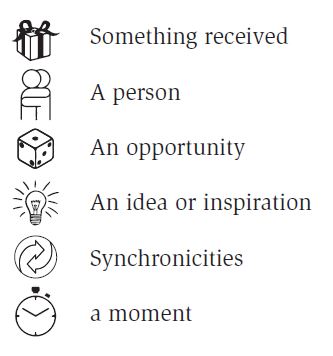Get Easy Health Digest™ in your inbox and don’t miss a thing when you subscribe today. Plus, get the free bonus report, Mother Nature’s Tips, Tricks and Remedies for Cholesterol, Blood Pressure & Blood Sugar as my way of saying welcome to the community!
What gratitude does to your brain will make you happy

In its most genuine state, gratitude is not merely the act of acknowledging positive aspects or blessings in your life, but of feeling a true appreciation for them.
And when the feelings of gratitude are genuine, something amazing happens…
Your brain actually changes and so does your outlook on life–and your overall well-being.
An experiment in gratitude
One of the leading scientists looking into the neurological effects/components of gratitude is Dr. Robert Emmons. In 2003 he conducted a 10-week gratitude experiment wherein he divided participants into three groups:
The “gratitude condition” group was asked to write down five things they were grateful for during the 10 weeks of the study.
The “hassles condition” group was asked to write down five daily hassles from the previous week.
And, lastly, the “events/control condition” group was asked to list five events that had occurred each week, but not told to focus on positive or negative aspects.
It turns out that the participants in the “gratitude condition” group felt 25% happier and more optimistic about their future than the other participants. Moreover, because they felt better about their lives, they engaged in nearly 1.5 hours more exercise weekly than the other respondents.
Expressing gratitude changes the brain
A study published in the journal NeuroImage found that expressing gratitude leads to longer-term effects on brain activity. For the study, scientists recruited subjects who were entering psychotherapy for depression and/or anxiety and divided them into two groups.
One group engaged in therapy as usual. The other group engaged in gratitude writing as an intervention, which required them to write letters expressing gratitude. After three months, the participants were asked to perform a “pay it forward” task in an fMRI scanner.
Researchers discovered that simply writing letters expressing gratitude was associated with “significantly greater and lasting neural sensitivity to gratitude.” In other words, the more one writes about gratitude, the more gratitude they feel, resulting in “significantly greater neural modulation by gratitude in the medial prefrontal cortex three months later.”
But you don’t have to think of endless people to write letters to in order to activate the brain’s gratitude mechanism. You can simply journal it.
Use a gratitude journal
According to Dr. Emmons’ research, when compared to those who merely kept a diary or journal about various happenings in their lives, those who specifically maintain a daily gratitude journal show the following positive changes:
- They exercise more regularly
- They report fewer physical symptoms
- They feel better about their lives as a whole
- They are more optimistic about the upcoming week.
- They are more likely to have made progress toward important personal goals.
- They have elevated positive states of alertness, enthusiasm, determination, attentiveness.
- They are more likely to help someone with a personal problem or having offered emotional support to another.
All of this improved well-being from changes in neural brain networks associated with dopamine and serotonin, without medication or years of therapy. The mere act of writing down what you are grateful for can change your life.
My favorite gratitude journal is called My Gratitude Journal. Unlike other journals and diaries, this one provides six different “gratitude icons” (pictured) to help you think about different ways in which you can find gratitude in your daily life. In other words, it helps you recall “what you are grateful for” each day for a three year period.
But you don’t have to follow any specific rule to jot down your own thoughts expressing gratitude in any old diary or notebook. The important thing is that you try it and remember to make note of even the smallest of things you’re grateful for. Hopefully, you’ll be amazed at the positive results.
Editor’s note: 38.6 million Americans take a single drug every day that robs their brain of an essential nutrient required for optimal brain health. Are you one of them? Click here to find out!












